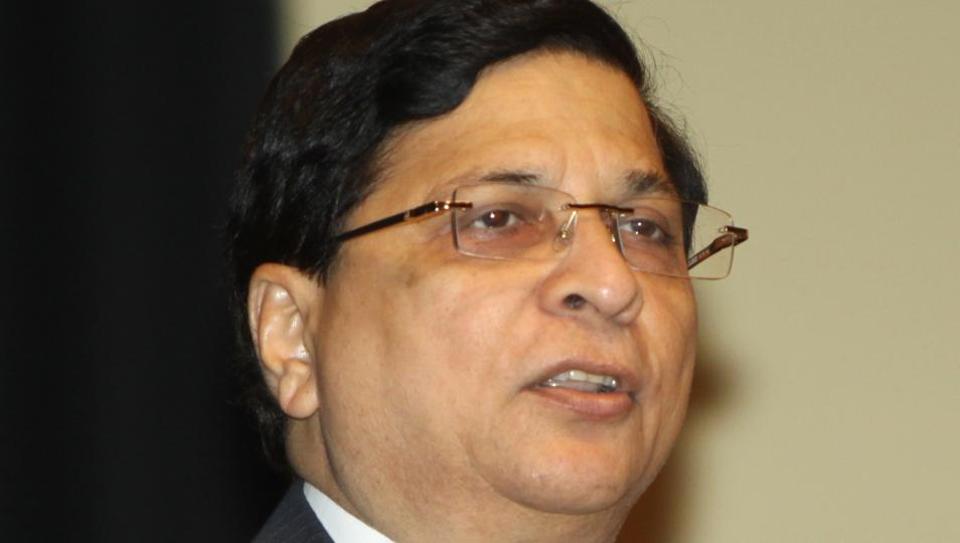As Chief Justice of India Jagdish Singh Khehar retires this month, he leaves behind some big shoes to be filled. After the tumultuous reign of his predecessor TS Thakur who oversaw constant fighting between the judiciary and the government thus leading to important reforms and appointments in the judiciary being stonewalled, JS Khehar brought much needed stability and restored the credibility of the judiciary. In keeping with the norms, CJI JS Khehar recommended the name of the senior most SC judge for the post of the next Chief Justice of India which was subsequently passed by the Law Ministry.Dipak Misra is all set to become the 45th Chief Justice of India this month.
Justice Dipak Misra was born on 3rd October 1953. He enrolled as an advocate on 14th February 1977 and practiced in Constitutional, Civil, Criminal, Revenue, Service and Sales Tax matters in the Orissa High Court and the Service Tribunal. He was appointed as an Additional Judge of the Orissa High Court on 17th January 1996 and transferred to the Madhya Pradesh High Court on 03rd March 1997.He became permanent Judge on 19th December 1997. Justice Dipak Misra assumed charge of the office of Chief Justice, Patna High Court on 23rd December 2009 and charge of the office of the Chief Justice of Delhi High Court on 24th May 2010. Justice Misra was elevated to the Supreme Court on October 10, 2011. He will have a 14-month tenure and will retire in October 2018.
Justice Dipak Misra is often called “the citizen’s judge” due to his landmark rulings. His rulings have been lauded and lamented in equal measure. He was part of the bench which in an unprecedented pre-dawn hearing in July 2015, rejected Mumbai serial blasts convict Yakub Memon’s last minute bid to escape the hangman’s noose.
He said, “Stay of death warrant would be a travesty of justice. The plea is dismissed.” However, he is most famous for his ruling in the bone chilling Nirbhaya case. Justice Misra led the Supreme Court bench which gave death penalty to the four accused in the case. The “brutal, barbaric and diabolic nature” of the crime could create a “tsunami of shock” to destroy a civilised society, the verdict, penned by Justice Misra, had said.
Justice Dipak Misra is also credited with bringing much needed police reforms. In Own Motion vs State, wherein the court directed law enforcement authorities to upload FIR’s on the official website within 24 hours of their filing to allow the accused to take appropriate and timely recourse to available remedies.
Amid the backdrop of recent reservation stirs by the Patels, Jats and the latest entrant the Marathas, the arrival of Justice Misra as the CJI might spell doom for them. Justice Misra was a part of the bench that upheld an Allahabad High Court judgment striking down reservations in promotion of government officials.
Justice Dipak Misra, who is National Legal Services Authority executive chairman, was the mastermind behind the idea of introducing Legal Assistance Establishments in states to streamline activities to provide free legal aid to the needy. He was promoted to Supreme Court in 2011 on back of swift disposal of over 5,000 cases and the success of the mediation centre in the high court during his tenure.
He was part of the bench who made it mandatory the playing of national anthem in cinema halls which aroused widespread debates across the country. He has his share of detractors after the conviction of Yakub Memon and hence was assigned high level security since the judgement. To gauge what Justice Dipak Misra is really like, one example during his stint as the Chief Justice of Delhi High Court is enough to shut his detractors. As the chief justice of the Delhi High Court, he had the court up and running within hours of a blast ripping through it. Several people died in the blast, but he refused to be fazed by the blast. “We cannot be seen as cowing down before terrorists,” he had said then, while personally ensuring that the institution was back on its feet.
Justice Misra’s courtroom is always jam-packed, One is sure of a decision soon enough. He is quick to grasp the nuances of any complicated case and is equally adept at handling tricky situations. Hence, it is not surprising that he is chosen to head the bench overseeing the Ayodhya-Babri Masjid case which will begin in a few weeks.
Often criticised by his detractors for being pro-government due to his anthem ruling, his detractors often forget that he got the central government to revoke President’s rule in Uttarakhand and restored the then Nabam Tuki led Congress government in Arunachal Pradesh.
Justice Dipak Misra, who often quotes extempore from Shakespeare and ancient texts, has a unique style of self-expression in writing judgments: A style that relies heavily on literary sources and complex word play. Some of his judgements can be found here . Good luck deciphering them.
On a serious note, Justice Dipak Misra has his task cut out for the next 14 months. He may change the face of the judiciary as he will have to appoint as many as 10 judges during his time at the helm including 4 immediate vacancies which JS Khehar has left to him. He will also have to ensure his recommendations of the new judges are not stuck like during the tenure of TS Thakur. Also, he will have to oversee many contentious issues like the Ayodhya-Babri masjid dispute, the Sahara payment row and the recently the Aadhar privacy issue. Hopefully, Justice Misra will live up to his reputation.
